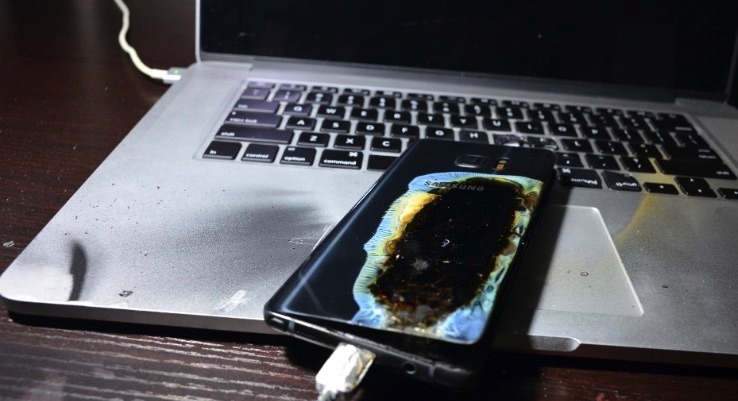The U.S. Consumer Product Safety Commission is urging producers of lithium-ion batteries to modernize their safety standards, in order to minimize the possibility of faulty batteries causing fires in consumer devices, in the wake of the Samsung Galaxy Note 7 recall fiasco.
"Consumers should never have to worry that a battery-powered device might put them, their family, or their property at risk," advises CPSC Chairman Elliot Kaye in a statement received by Reuters. Noting the numerous Note 7 incidents and the major recall, the safety regulator is now working with Samsung and the industry to update the voluntary standards for lithium-ion batteries used in smartphones.
"At a minimum, industry needs to learn from this experience and improve consumer safety by putting more safeguards in place during the design and manufacturing stages to ensure the technologies run by lithium-ion batteries deliver their benefits without the serious safety risks."
Notably, the statement from Chairman Kaye arrives at the same time as a recall of batteries for notebooks is expanded. On Tuesday, the CPSC issued the new notice, advising the lithium-ion batteries used in HP and Compaq notebooks could overheat and are fire and burn hazards, with consumers able to request a replacement battery.
In September last year, the CPSC announced a recall from Samsung for the Galaxy Note 7 triggered a federal U.S. law that prohibited the sale of the smartphone. The CPSC notes the recall of 2.5 million Note 7 handsets had an extremely high response rate of 97 percent, unlike the "dangerously low" consumer response typically prompted by recall notices.
An investigation by Samsung into the failures claims the first fires were caused by a design flaw in the battery's upper right corner, causing short circuits. In the replacement batch of batteries, a manufacturing issue involving ultrasonic welding caused a new defect on the batteries, again causing a short circuit.
While Samsung estimates the final cost to the company will ultimately be over $5 billion, the Note 7 incident didn't stop the South Korean electronics giant from seeing increased operating profits in its latest financial results notice, giving it the best fourth quarter performance in over three years.
 Malcolm Owen
Malcolm Owen







-m.jpg)






 Charles Martin
Charles Martin
 Christine McKee
Christine McKee
 Wesley Hilliard
Wesley Hilliard

 Andrew Orr
Andrew Orr
 William Gallagher
William Gallagher
 Sponsored Content
Sponsored Content








5 Comments
Uh... wait a second guys. There's a freeze on new regulations, didn't you hear?
Companies like Samsung cannot be burdened by a bunch of gubberment rules preventing them from shipping exploding phones.
The free market needs to decide whether exploding phones are good or not. We don't need bureaucrats taking our exploding phone from us!
The pessimist side of me thinks that battery prices will go up and capacity and life expectancy will go down as a result.
Samsung has admitted that it was the way that THEY made the batteries, it wasn't the battery market's fault. Now we're going to 'suffer' from lower battery time because of ONE company's mistake?
Called it!